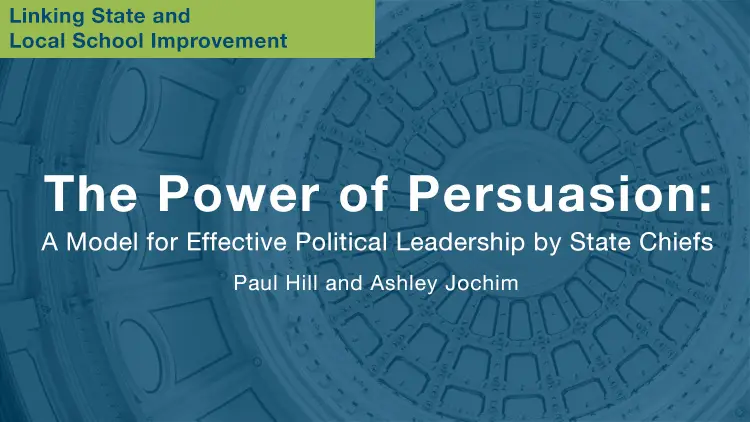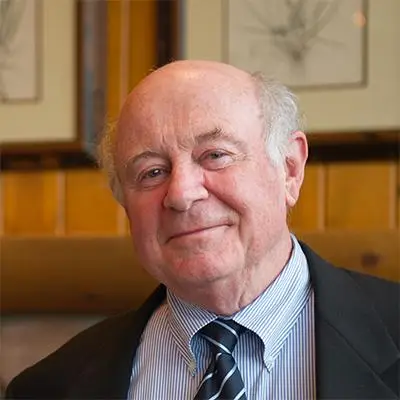Many have observed that the passage of the Every Student Succeeds Act provides states a prime opportunity to support improvement in K-12 education. But can state chiefs, historically weak and with few formal powers, deliver? In a new paper published today, we argue that they can.
While chiefs employ few people and control little money, their position and its limited but real powers create bargaining leverage that, skillfully used, can make a great deal of difference for students.
We draw what at first appears to be an unlikely analogy, based on Richard Neustadt’s 1960 book, Presidential Power. Neustadt shows how the presidency is weak in light of all the events that presidents need to influence if they are to achieve anything. Just like state chiefs, presidents can accomplish very little without gaining the cooperation of others—including elected officials, administrators, practitioners, and interest groups—who have their own objectives and can evade or outwait even a determined leader.
Thus, the core idea of Neustadt’s book: Presidential power is the power to persuade. Things get done when a political executive gives others reasons to see that it is in their own interest to take particular actions.
Effective bargaining is much more than making promises or exchanging favors. Chiefs can make smart use of their formal powers, for example signaling what must be present in a district’s application for state or federal funds before the chief will approve it. Chiefs can open doors for others, keep state bureaucrats off the backs of local reformers, praise others in ways that help them, and pull together groups of potentially like-minded people who otherwise might never work together.
Neustadt provides some fine-grained examples of how presidents have increased their own effectiveness by recognizing all the ways they can benefit others and bargaining accordingly. We do the same, providing examples of how savvy chiefs have built new coalitions in the state Capitol, helped district leaders and innovators find ways through bureaucratic tangles, and facilitated collaborations at the local level.
Based on a set of interviews with current and former state chiefs, we provide examples of how chiefs can increase their effectiveness and overcome political roadblocks by forming alliances with groups interested in economic development and higher education, and build and capitalize on a reputation for having clear goals and knowing how to achieve them.
We also illustrate how chiefs can benefit from following Neustadt’s most jarring prescription—that in taking any action presidents (or chiefs) should always choose the option that does the most to increase their own power. Though at first glance this principle seems crass and indifferent about results, it’s not: Chiefs’ future power builds on their success in developing influence with new constituencies. Chiefs should, however, avoid decisions that give them no options for corrective actions if things don’t work out, or that make others unwilling to deal with them in the future.
Our main message is that while chiefs always care about what happens in schools, to be effective they must master the art of politics. Chiefs’ formal powers may be limited but they can grow (and recede) depending on how they exercise political leadership and who they are able to convince to support them.
We hope this paper is a resource for current and aspiring chiefs, and for groups offering pre-service training. It is hard to prepare for a role that is not well understood. We hope this will help attract and prepare people from inside and outside education who want to do the full chief’s job, not just a familiar part of it.
As we conclude, the politics of individual states will determine how far a particular chief can take these ideas. However, any chief who says, “This political stuff is not for me” accepts unnecessary limits on their ability to improve education and serve children.
The Power of Persuasion: A Model of Effective Political Leadership by State Chiefs is part of our Linking State and Local School Improvement initiative.





